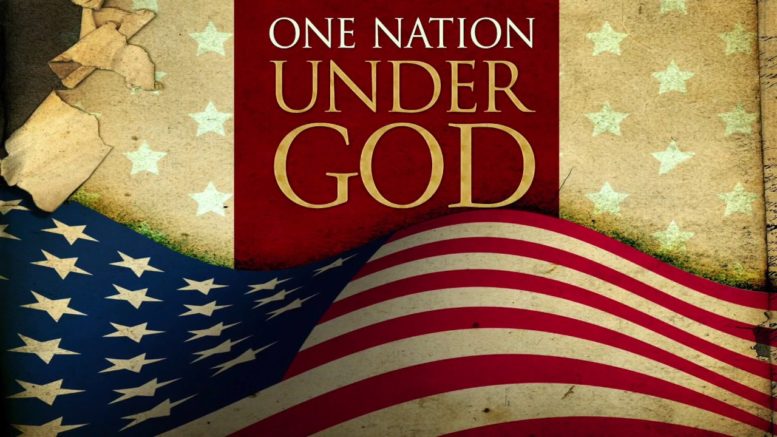The positions over border security today, and what it should look like, provide a telling example of how much society has changed. Immigration is one of the few powers granted to the federal government. So why isn’t this power being exercised? The arguments against a wall (barrier) provide an opportunity to examine the underlying ideas, and why they matter.
Those arguments have two bases. The “crisis is manufactured” is the first argument. It is not real. The examples reported in the news don’t reflect the great majority of immigrants. The second that building a barrier is immoral. It is racist. Of course these are not all of the arguments, but many others spring from one or both of these.
I’ve stated before that ideas matter. They shape our decisions and actions. They determine who we become. The border security discussion provides a clear case supporting this claim.
A Manufactured Crisis
Underlying the first argument is the claim there is no crisis. Nothing is happening that warrants securing the border. This is simply not true, and this argument itself shows a lack of compassion for others. First, our fellow citizens are being harmed. Violent crime statistics from Texas are alarming. Tens of thousand of violent crimes committed by illegal immigrants alone over the last eight years include murder, rape, assault, robbery, etc. And that is just one state. We should not be surprised. People of good character do not transport illegal drugs or participate in the sex trafficking also occurring.
Immigrants themselves are the second group harmed. After 9/11, most illegal immigrants were young men. Today many of them are women and children, brought by the promise of a better life rather than political or religious freedom. Reports suggest many of these women and children are raped, abused, or sold into slavery. Too often some die on the journey in the desert or unventilated trailers, because they choose to enter illegally instead of legally through ports of entry. This situation is immoral.
However, it depends on your definition of morality. Christian principles state we are all equal because we all have the same creator, we all bear God’s image. When God is removed, man is no longer made in his image. Instead man uses his own values to determine equality. This idea is actually an extension of today’s liberation theology.
The Ends Alone
Liberation theology is religion devoid of a creator God. Its goals are achieving all kinds of justice for everyone. It’s all about outcomes, the material here and now rather than the spiritual. A thought that by simply achieving the material the spiritual will be present. Its justice is to be achieved at all cost. All resources should be brought to bear in achieving it, including political and religious power. Any harm done in the process, while regrettable, is acceptable in order to achieve the greater good of achieving justice.
There is just one problem. That view is heresy, the insertion of pagan ideas into Christian doctrine. It is the Pharisee’s mistake that actions alone in adhering to the letter of the law were all that mattered. It is the belief that God is somehow inadequate. Man must either help God along or rely on himself. Violence is acceptable in bringing an end about. These are all pagan ideas. They are contrary to, and incompatible with, the Christian principles providing America’s foundation.
Pagan Virtue
Underlying this pagan notion of justice is a pagan idea of virtue. Within pagan thought virtue is a mixing of good and evil in actions. It is a blending of white and black into grey. Something just needs to be a little more good than evil to be acceptable. This is the rationale for why a wall is not needed. By having a wall we will prevent the greater good from occurring. Those harmed along the way, whether citizen or immigrant, are part of the price for achieving that end.
The Christian notion of virtue stands this pagan view on its head. Christian principles assert that there is only good and only evil. There is only white and black. We can only choose either good or evil. There is no mixing, no blending. It is our choices that matter, and we must choose either good or evil. Whenever someone presents an idea in terms of it being a greater good or lesser evil, they are offering a pagan idea of virtue.
The Wall and Immorality
This brings us to the second argument that building a wall is immoral. It is immoral only if one clings to the pagan idea of virtue. Christian principles state an action is known by the fruit it produces. The action of having no barrier produces the fruit that harm is done to others. It doesn’t matter who they are. The outcome is immoral because it is based upon an immoral action.
As to the charge that supporting a wall is racist, let’s define racism. Racism is simply believing that one group is superior to another. That differences exist in people. It can be racial, but isn’t limited to that. It is simply elitism, some group viewing themselves as being better than others. This is the pagan idea that some are more equal than others. Christian principles say we are all equal as we all share the same nature. Christianity asserts there is only one group—that is, man. Those hurling the term racism should examine their own actions. Those adhering to these pagan ideas believe themselves to be in a different group, one that is superior to others—elitist. They often accuse others of what they practice themselves.
Truth
I for one want legal immigration. All should have the opportunity, but it also matters what ideas you hold—as just laid out in this article. America is an idea. Those ideas promote opportunity, harmony, and peace. Immigrants holding those ideas should be welcomed with open arms. Whether America’s promise is achieved depends to a large degree on the gifts we were each given and how well we apply them. Our nature is the same, but our abilities aren’t.
Pagan notions create groups. Those ideas lead to division, jealousy, and civil unrest. They exist in our society because they are the core of a secular education. Someone will likely say that by supporting a specific set of ideas as being superior, that I’m demonstrating the very elitism just described. But if believing in and supporting the ideas that bring about good is elitist, then sign me up. I must follow God rather than man.
January 11 was the thirtieth anniversary of Reagan’s farewell address. I’ll close with a passage from it. Reagan said, “If we forget what we did, we won’t know who we are.” This statement applies not only to our actions, but our ideas as well. Our founding ideas of man’s equality of nature and opportunity provide the best hope for achieving good. As we are not perfect, we will not always achieve it. But what matters is we try.
We can change the ideas we hold at any time, but we must first learn what good is. As we are starting a new year, I would recommend starting that process by going to its source—by reading the entire Bible. It’s not hard. It just requires your commitment to become better tomorrow than you are today.





